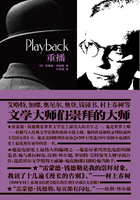Yearly, down the hillside sweeping, came the stately cavalcade, Bringing revel to vaquero, joy and comfort to each maid;
Bringing days of formal visit, social feast and rustic sport, Of bull-baiting on the plaza, of love-making in the court.
Vainly then at Concha's lattice, vainly as the idle wind, Rose the thin high Spanish tenor that bespoke the youth too kind;
Vainly, leaning from their saddles, caballeros, bold and fleet, Plucked for her the buried chicken from beneath their mustang's feet;
So in vain the barren hillsides with their gay serapes blazed,--Blazed and vanished in the dust-cloud that their flying hoofs had raised.
Then the drum called from the rampart, and once more, with patient mien, The Commander and his daughter each took up the dull routine,--Each took up the petty duties of a life apart and lone, Till the slow years wrought a music in its dreary monotone.
V
Forty years on wall and bastion swept the hollow idle breeze, Since the Russian eagle fluttered from the California seas;
Forty years on wall and bastion wrought its slow but sure decay, And St. George's cross was lifted in the port of Monterey;
And the citadel was lighted, and the hall was gayly drest, All to honor Sir George Simpson, famous traveler and guest.
Far and near the people gathered to the costly banquet set, And exchanged congratulations with the English baronet;
Till, the formal speeches ended, and amidst the laugh and wine, Some one spoke of Concha's lover,--heedless of the warning sign.
Quickly then cried Sir George Simpson: "Speak no ill of him, I pray!
He is dead. He died, poor fellow, forty years ago this day,--"Died while speeding home to Russia, falling from a fractious horse.
Left a sweetheart, too, they tell me. Married, I suppose, of course!
"Lives she yet?" A deathlike silence fell on banquet, guests, and hall, And a trembling figure rising fixed the awestruck gaze of all.
Two black eyes in darkened orbits gleamed beneath the nun's white hood;
Black serge hid the wasted figure, bowed and stricken where it stood.
"Lives she yet?" Sir George repeated. All were hushed as Concha drew Closer yet her nun's attire. "Senor, pardon, she died, too!"
"FOR THE KING"
(NORTHERN MEXICO, 1640)
As you look from the plaza at Leon west You can see her house, but the view is best From the porch of the church where she lies at rest;
Where much of her past still lives, I think, In the scowling brows and sidelong blink Of the worshiping throng that rise or sink To the waxen saints that, yellow and lank, Lean out from their niches, rank on rank, With a bloodless Saviour on either flank;
In the gouty pillars, whose cracks begin To show the adobe core within,--A soul of earth in a whitewashed skin.
And I think that the moral of all, you'll say, Is the sculptured legend that moulds away On a tomb in the choir: "Por el Rey."
"Por el Rey! "Well, the king is gone Ages ago, and the Hapsburg one Shot--but the Rock of the Church lives on.
"Por el Rey!" What matters, indeed, If king or president succeed To a country haggard with sloth and greed, As long as one granary is fat, And yonder priest, in a shovel hat, Peeps out from the bin like a sleek brown rat?
What matters? Naught, if it serves to bring The legend nearer,--no other thing,--We'll spare the moral, "Live the king!"
Two hundred years ago, they say, The Viceroy, Marquis of Monte-Rey, Rode with his retinue that way:
Grave, as befitted Spain's grandee;
Grave, as the substitute should be Of His Most Catholic Majesty;
Yet, from his black plume's curving grace To his slim black gauntlet's smaller space, Exquisite as a piece of lace!
Two hundred years ago--e'en so--The Marquis stopped where the lime-trees blow, While Leon's seneschal bent him low, And begged that the Marquis would that night take His humble roof for the royal sake, And then, as the custom demanded, spake The usual wish, that his guest would hold The house, and all that it might enfold, As his--with the bride scarce three days old.
Be sure that the Marquis, in his place, Replied to all with the measured grace Of chosen speech and unmoved face;
Nor raised his head till his black plume swept The hem of the lady's robe, who kept Her place, as her husband backward stept.
And then (I know not how nor why)
A subtle flame in the lady's eye--Unseen by the courtiers standing by--Burned through his lace and titled wreath, Burned through his body's jeweled sheath, Till it touched the steel of the man beneath!
(And yet, mayhap, no more was meant Than to point a well-worn compliment, And the lady's beauty, her worst intent.)
Howbeit, the Marquis bowed again:
"Who rules with awe well serveth Spain, But best whose law is love made plain."
Be sure that night no pillow prest The seneschal, but with the rest Watched, as was due a royal guest,--Watched from the wall till he saw the square Fill with the moonlight, white and bare,--Watched till he saw two shadows fare Out from his garden, where the shade That the old church tower and belfry made Like a benedictory hand was laid.
Few words spoke the seneschal as he turned To his nearest sentry: "These monks have learned That stolen fruit is sweetly earned.
"Myself shall punish yon acolyte Who gathers my garden grapes by night;
Meanwhile, wait thou till the morning light."
Yet not till the sun was riding high Did the sentry meet his commander's eye, Nor then till the Viceroy stood by.
To the lovers of grave formalities No greeting was ever so fine, I wis, As this host's and guest's high courtesies!
The seneschal feared, as the wind was west, A blast from Morena had chilled his rest;
The Viceroy languidly confest That cares of state, and--he dared to say--Some fears that the King could not repay The thoughtful zeal of his host, some way Had marred his rest. Yet he trusted much None shared his wakefulness; though such Indeed might be! If he dared to touch A theme so fine--the bride, perchance, Still slept! At least, they missed her glance To give this greeting countenance.















